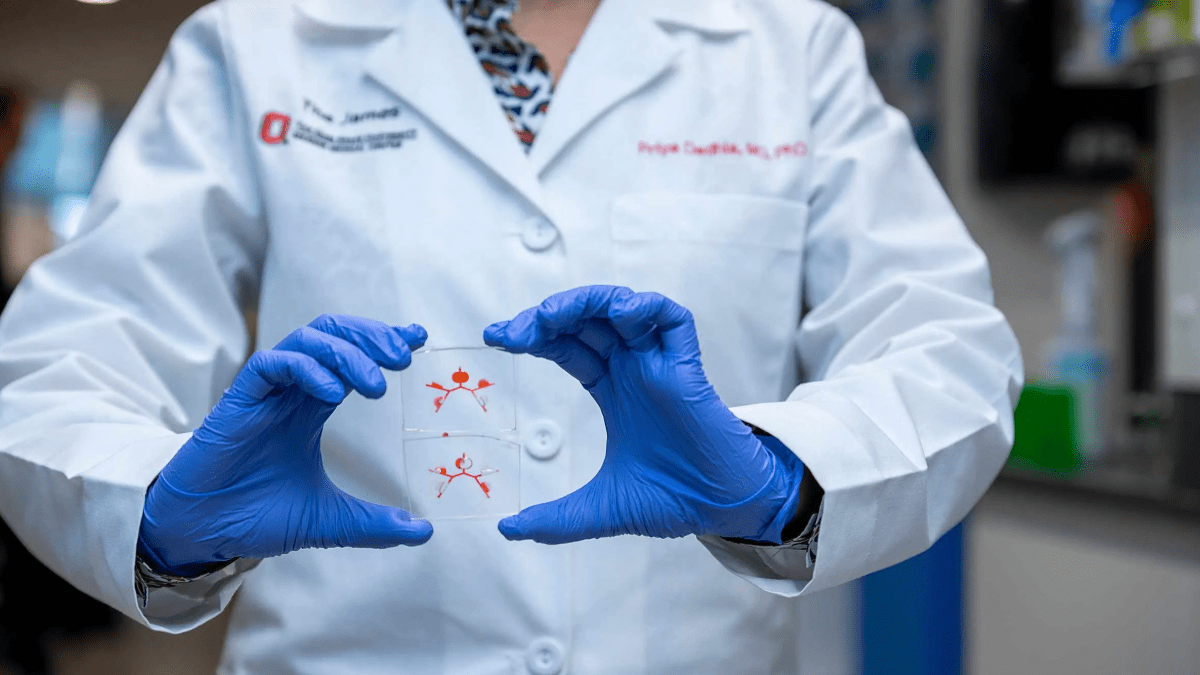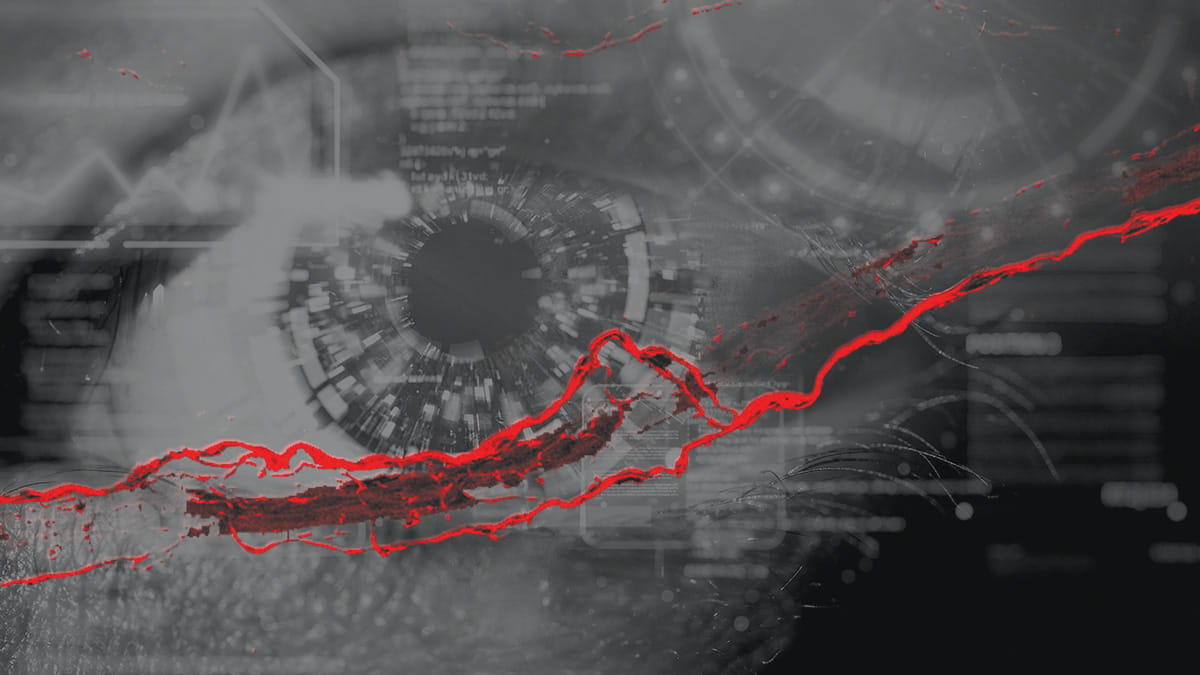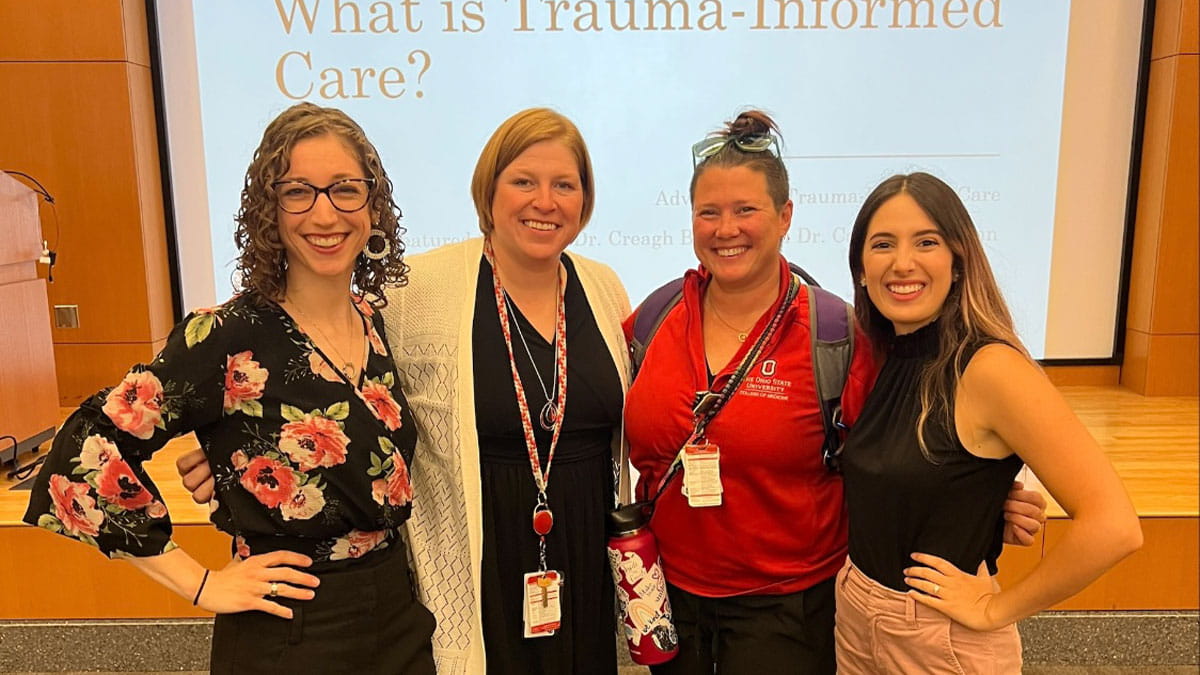Black Men in Medicine creates community and support network for doctors of tomorrow

Even with a solid educational base, the journey to becoming a doctor is long, rigorous and easily derailed. This is especially true for groups underrepresented in medicine. The organization Black Men in Medicine (BMIM) exists to support and mentor Black male undergraduates, medical students, residents, attending physicians and tenured faculty on their journey in the medical profession.
“We didn’t get here by ourselves,” says Ray Bignall, MD, assistant professor of Pediatrics at The Ohio State University College of Medicine and Nationwide Children’s Hospital. “We’re investing in each other by encouraging those coming up behind us.”
Evans Osuji, a third-year medical student, serves as president of BMIM at Ohio State. He says in addition to presentations, discussions, resources and mentorship, BMIM offers educational programs and mentorship for elementary, middle, high school and pre-med students throughout Ohio. This enables medical students to become role models for students and helps them see medicine as a viable career choice.
“To me it’s brotherhood, it’s community” Osuji says. “Diversity is what drew me to Ohio State, and getting involved with mentorship has been transformational.”
At a recent round table event, Henry Young, MD, associate professor of Emergency Medicine at the Ohio State College of Medicine, shared his experience in medical school where he was one of three Black men in his program.
“We felt the absence of Black peers but as soon as we started rotations, things changed,” Dr. Young says. “Seeing the pride in the eyes of minority patients when they realized I was their doctor was really moving and motivating.”
Dr. Young says today he feels an increased understanding and level of trust when he walks into a room and tells his minority patients that they need to take a certain medication, undergo a certain test or make a lifestyle change. They say, “If you say I need to do this, I’ll do it.”
After Dr. Young finished fielding questions from the group, an open discussion brought forth many more stories of perseverance and mentorship. Those more seasoned in their careers offered words of encouragement while normalizing feelings of overwhelm and anxiety and sharing healthy coping mechanisms.
“There’s a lot of wisdom and experience in this room,” Dr. Bignall says. “We exist to help each other, and we have to put forth the energy to encourage each other at every stage of this journey.”
This video was produced by Jason Johns and Jason Hazel, who both serve as senior digital media producer in the Office of Technology and Digital Innovation at The Ohio State University.




